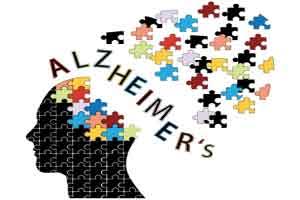- Home
- Editorial
- News
- Practice Guidelines
- Anesthesiology Guidelines
- Cancer Guidelines
- Cardiac Sciences Guidelines
- Critical Care Guidelines
- Dentistry Guidelines
- Dermatology Guidelines
- Diabetes and Endo Guidelines
- Diagnostics Guidelines
- ENT Guidelines
- Featured Practice Guidelines
- Gastroenterology Guidelines
- Geriatrics Guidelines
- Medicine Guidelines
- Nephrology Guidelines
- Neurosciences Guidelines
- Obs and Gynae Guidelines
- Ophthalmology Guidelines
- Orthopaedics Guidelines
- Paediatrics Guidelines
- Psychiatry Guidelines
- Pulmonology Guidelines
- Radiology Guidelines
- Surgery Guidelines
- Urology Guidelines
Exercise prevents brain damage and cognitive decline in Alzheimer's disease: JAMA

Researchers from Massachusetts General Hospital (MGH) have found that higher levels of daily exercise or physical activity may protect against the cognitive decline and neurodegeneration in patients of Alzheimer's disease (AD).
The findings from this study will be presented at the Alzheimer's Association International Conference (AAIC) in Los Angeles and have been published ina paper in JAMA Neurology.
The team also reported that lowering vascular risk factors may offer additional protection against Alzheimer's and delay progression of the devastating disease.
The report suggests that exercise or physical activity might reduce b-amyloid (Ab)-related cortical thinning and preserve gray matter structure in regions of the brain that have been implicated in episodic memory loss and Alzheimer's-related neurodegeneration.
"One of the most striking findings from our study was that greater physical activity or exercise not only appeared to have positive effects on slowing cognitive decline, but also on slowing the rate of brain tissue loss over time in normal people who had high levels of amyloid plaque in the brain," says Jasmeer Chhatwal, MD, PhD of the MGH Department of Neurology, and corresponding author of the study.
The pathophysiological process of AD begins decades before clinical symptoms emerge and is characterized by the early accumulation of b-amyloid protein. The MGH study is among the first to demonstrate the protective effects of physical activity and vascular risk management in the "preclinical stage" of Alzheimer's disease, while there is an opportunity to intervene prior to the onset of substantial neuronal loss and clinical impairment. "Because there are currently no disease-modifying therapies for Alzheimer's disease, there is a critical need to identify potential risk-altering factors that might delay the progression of the disease," says Chhatwal.
The Harvard Aging Brain Study at MGH assessed physical activity in its participants - 182 normal older adults, including those with elevated b-amyloid who were judged at high-risk of cognitive decline - through hip-mounted pedometers which counted the number of steps walked during the course of the day.
Beneficial effects were seen at even modest levels of physical activity, but were most prominent at around 8,900 steps, which is only slightly less than the 10,000 many of us strive to achieve daily," notes co-author Reisa Sperling, MD, director of the Center for Alzheimer's Research and Treatment, Brigham and Women's Hospital and Massachusetts General Hospital and co-principal investigator of the Harvard Aging Brain Study.
Interventional approaches that target vascular risk factors along with physical exercise have added beneficial properties, she adds since both operate independently. Vascular risk factors measured by the researchers were drawn from the Framingham Cardiovascular Disease Risk Score Calculator, and include age, sex, weight, smoking/non-smoking, blood pressure, and whether people are on treatment for hypertension.
Through ongoing studies, MGH is working to characterize other forms of physical activity and lifestyle changes that may help retard the progress of Alzheimer's disease. "Beta-amyloid and tau protein build-up certainly set the stage for cognitive impairment in a later age, but we shouldn't forget that there are steps we can take now to reduce the risk going forward - even in people with the build-up of these proteins," says Chhatwal. "Alzheimer's disease and the emergence of cognitive decline is multifactorial and demands a multifactorial approach if we hope to change its trajectory."
For more details click on the link: http://dx.

Disclaimer: This site is primarily intended for healthcare professionals. Any content/information on this website does not replace the advice of medical and/or health professionals and should not be construed as medical/diagnostic advice/endorsement or prescription. Use of this site is subject to our terms of use, privacy policy, advertisement policy. © 2020 Minerva Medical Treatment Pvt Ltd